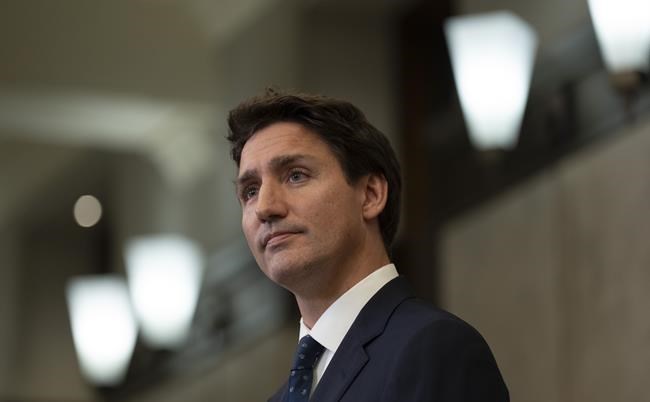SOREL-TRACY, Que. — Ottawa will invest $222 million to help a Quebec company increase production of critical minerals for goods such as electric cars and batteries while simultaneously cutting emissions, Prime Minister Justin Trudeau said Tuesday.
It's part of a $737-million plan from Rio Tinto over eight years to decarbonize its Rio Tinto Fer et Titane operations in Sorel-Tracy, Que., and boost its production of critical minerals such as lithium, scandium and titanium.
Trudeau made the announcement after visiting the facility, about 90 kilometres northeast of Montreal.
"Today’s announcement with Rio Tinto will create jobs and position Canada as a leader in the critical minerals that go into things like electric vehicles for our net-zero future," Trudeau told a news conference.
The money, he said, will come through the Strategic Innovation Fund and help the plant in central Quebec cut its emissions in half by 2030 by electrifying furnaces and cutting out coal.
Jakob Stausholm, Rio Tinto's CEO, said the investment would help strengthen North American critical mineral production at a time when global tensions highlight the need for secure supplies.Â
He gave the example of scandium, a mineral that he said was previously produced almost exclusively in Russia and China, but is now being produced in Quebec.
He said critical minerals are also important to several sectors that play key roles in addressing climate change -- including electric vehicles, 3D printing and aerospace.
"Critical minerals are simply a requirement in order to change the world's energy system," he said.
The federal government said in a news release that its investment will create up to 150 jobs at the company.
It adds that the funding will support domestic and foreign clean technology supply chains and help make Canada the "global supplier of choice" for the critical minerals and materials needed for the green, digital global economy.
Earlier, Trudeau donned a safety hat and glasses as he toured a  demonstration plant that will test new smelting technology aimed at reducing emissions. The project, called BlueSmelting, works by breaking down minerals at the molecular level before they're melted, reducing the amount of coal required, according to Caroline Bureau, the company's executive director of engineering and contractor management.
The company said in a news release that the project, if it is ever fully implemented and expanded, has the potential to reduce the greenhouse gas emissions at Rio Tinto's Sorel-Tracy operation by up to 70 per cent.
This report by The Canadian Press was first published Oct. 11, 2022.
Morgan Lowrie, The Canadian Press



